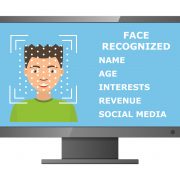The future quality of our work and our world is going to be governed more and more by our entrepreneurial capabilities. The emergent technologies of A.I., cloud computing, and global talent and commerce platforms will augment everyone’s capacity, and will place increased demands on each of us to define our specialist value, specialist skills and specialist contribution in the interconnected global economy.
In addition, organizational norms are going to evolve and change, mostly in the direction of less structure and greater flexibility. In the future, we are more likely to work for ourselves, or as part of a flexible team arrangement in which our individual contribution is measured carefully and rewarded commensurately.
The requirement for each of us, as a consequence, is to develop and reinforce our entrepreneurial skills, so that we can plan, learn and adapt on our pathway through a fast-changing world of work, technology and organization. It is valuable to conduct a self-assessment of our entrepreneurial aptitude. Here are the attributes to examine.
Empathy
Empathy is the primary entrepreneurial skill: the ability to understand and respond to how others feel and how they think and why they behave as they do. Those others are co-workers, team members, customers, partners, networking connections, information providers, service providers, and innumerable people with whom we interconnect on global platforms. We all are naturally empathetic, but our circle of empathy can be quite narrow. Adam Smith famously pointed out that a person living in Europe might feel some distress in the event of a massive earthquake in China that caused millions of deaths, but it would be nothing compared to the distress caused by some private, local misfortune. But this narrow circle of empathy will not suffice in the modern world. Our empathetic engagement needs to extend worldwide, across demographics, and over multiple contexts. If we want to sell our talent or our services worldwide, our empathetic reach must complement our ambition.
Interconnection
We used to call it networking. Today, the updated term is interconnecting. It is possible to interconnect with virtually any individual, any firm, any vendor or service company, any knowledge and any learning provider. On global platforms, we can offer our talents and evaluate and purchase the talent of others. On social media, we can give and get appraisals and ratings of the products and services and experiences that we buy or we sell. We can potentially analyze the customer reaction of millions, or we can be the one to offer such a reaction.
Interconnection is a practice, a constant activity that expands and reinforces our entrepreneurial capacity. By working hard at interconnecting, we can improve our performance every day. It takes effort and a certain amount of desire.
Adaptability
The first principle of entrepreneurial economics is that the future is uncertain and unpredictable, and no amount of planning or forecasting or predictive analytics will make future uncertainty any more tractable. Successful entrepreneurs embrace uncertainty, betting that they can navigate its changing currents. The attribute required for confident navigation is adaptability, being able to adjust to new and emerging conditions. Adaptability can be innovative and even transformative. If you can change course, change beliefs, change behaviors, change priorities, or change alliances to adapt to new signals from the marketplace, your entrepreneurial prospects will always be bright.
Time Preference
Consumption is an act of high time preference, the expression of desire for immediate gratification – I want it now, rather than later. Entrepreneurship requires a highly developed practice of low time preference – the willingness to save, invest and take the time required to develop a product or service offering that will yield future returns while accepting sacrifice during the development phase. Entrepreneurs live in the future rather than the present. They make bets on what consumers will buy in the future, and they spend their effort in the present to create the appropriate offering. Entrepreneurs sacrifice in the present. They may take low or no salaries, they prioritize research and development funds, they test and experiment to polish quality rather than rush to market. Check your time preference to ascertain your appetite for the entrepreneurial life.
Lifelong learning
The traditional view of education and learning is that we concentrate it in our younger years so that we can devote our mature years to pursuing a career or developing a business based on the learning foundation we have established. Today, that approach simply doesn’t work. Change, both in people and technology, is so rapid, and the enormous flow of data available for analysis from every interaction and transaction is so transformative, that the old concept of education is totally outdated. The new concept is lifelong learning. In practice, that means that we commit ourselves to learning as a practice – that we will be open to data, analytics, information, and experience, and actively use these inputs to learn, to improve, to change and to get better at whatever we do. Nothing is fixed, no knowledge is permanent. Our attitude must be that of the lifelong learner, nurturing the capability to take in new knowledge, process it, and make whatever changes are required to act upon it, without clinging to any fixed precepts.
Co-creation
One of the outcomes of interconnection and lifelong learning is co-creation: innovation as a shared, social practice. Dr. Cristina Mele of University Of Naples calls entrepreneurs “inno-mediaries“. Inno-mediaries encourage new innovators (consumers, communities, and experts) to enter into the co-creation of innovation. Each individual one of us represents a critical component. The more we work at learning and the more we work at being interconnected, the more we contribute. We all should seek to be more knowledgeable, and better equipped for the collaborative economy. Co-creation is a practice we can each actively cultivate.
Grit
Working in the future, sacrificing the present, and learning through experimentation (which inevitably results in a lot of failed experiments) all require what Angela Duckworth calls Grit – the power of perseverance. There is no overnight success, and most entrepreneurial journeys require many years, often decades, of sustained effort. The earliest years may be the most trying, when the entrepreneur is at the lowest point on the learning curve, perhaps stretched for resources, with few successful data points to cultivate. There is no substitute for stick-to-it-iveness.
Individualism
Inherent in every attribute on our list is the embrace of individualism. You probably have ideas that are different from those of others, and may be mocked for that very reason. You may pursue a path that others don’t. You may read signals from the marketplace differently. You may be an innovator, the very definition of which is challenging the status quo. The ethos of individualism is that we all are free to try as hard as we can to contribute to society in a way that is different and better. Everyone else is free to provide feedback, both positive and negative, and the entrepreneur laps up that feedback in the form of learning, taking no offense at the negative feedback, and no excessive pride in the positive feedback. Individualism is the system that generates economic growth, improved life experiences and greater social order. The entrepreneur embraces individualism in the service of all.













